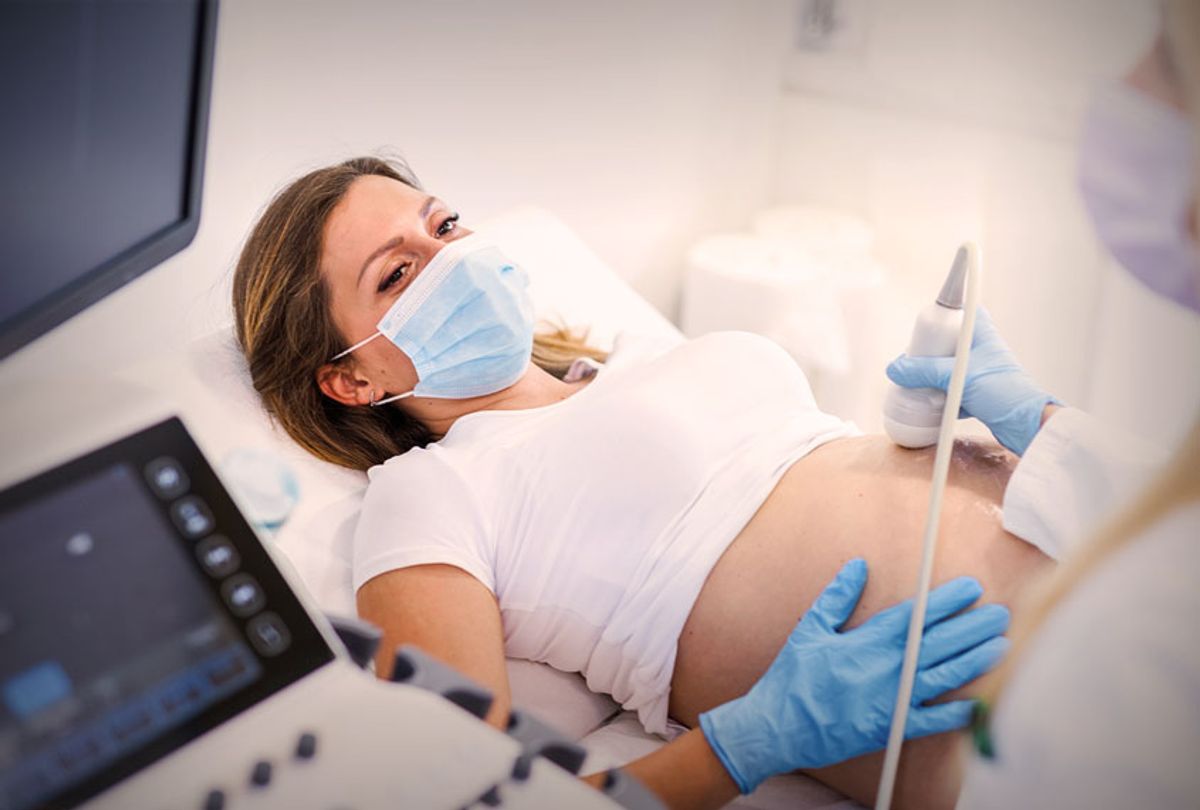While the world is now suffering a surge in cases of COVID-19's omicron variant, the delta variant, previously the dominant strain, is still very much alive. Indeed, because more time has passed since delta first appeared in India in December 2020, more research is beginning to surface around how it differs from previous variants of SARS-CoV-2 — especially in pregnant people.
In a new study published in the Journal of Infectious Diseases, researchers at Massachusetts General Hospital and Brigham and Women's Hospital report that they detected the delta variant in the blood and placentas of women who had stillbirths and serious pregnancy complications.
Previous studies have suggested that COVID-19 poses a threat to pregnant women and fetuses. But the new research adds to a suspicion that the delta variant in particular could be especially dangerous to those that are pregnant.
RELATED: Is COVID a disease of the blood vessels?
Andrea Edlow, a maternal-fetal medicine specialist at Massachusetts General Hospital, and Edlow's colleagues analyzed the nasal swabs, umbilical cord blood, and placentas of three women who had COVID-19 late in their pregnancies. Two of the women had stillbirths, and the third woman's fetus experienced distress and was delivered by an emergency cesarean birth. None of these women had been vaccinated against the COVID-19.
The researchers found in the blood samples that all the women had detectable levels of delta in their nasal swabs, and in their placentas. Viral sequencing confirmed that each woman was infected with the delta variant.
Want more health and science stories in your inbox? Subscribe to Salon's weekly newsletter The Vulgar Scientist.
"All the moms had detectable virus in the bloodstream. All had high levels of detectable virus in their nasal swabs. All had infected placentas," Edlow said. "This was definitely different from what we saw with the ancestral strain of SARS-CoV-2 during the first part of the pandemic."
The suspicion first surfaced that delta could pose a greater threat to unvaccinated pregnant women in late November, when the Centers for Disease Control and Prevention (CDC) reported that pregnant women with COVID-19 were four times more likely to miscarry than uninfected pregnant women during the stretch of time when delta was surging in the United States.
"It seemed like we were seeing even more sick moms and a disproportionate number of stillbirths," Edlow said about the 2021 delta surge.
As Salon previously reported, doctors were taken aback by how many pregnant women they were seeing in the ICU.
"We are seeing more pregnant individuals coming in with severe COVID-19 disease that is severe enough to require intensive care unit, admission and intubation," Dr. Melissa Simon, an obstetrician gynecologist and professor at Northwestern University's Feinberg School of Medicine, told Salon in August 2021. Simon said it was "concerning, because we're talking about not just the health of the pregnant person themselves but also the fetus." "This is really serious," Simon continued. "The numbers are increasing, and we could prevent that — the vaccinations could prevent that."
Jonathan Li, is an associate professor of Medicine at Harvard Medical School (HMS) said while COVID-19 is largely thought of as a disease that affects the lungs, it can travel throughout a person's bloodstream and cause severe complications, like organ failure. (Some previous studies have characterized SARS-CoV-2 as a virus that infects the cardiovascular system in general.) It's possible, the researchers note, that the delta variant entering the bloodstream caused inflammation in the placenta, which could have caused complications.
"Our testing showed that the virus was widely disseminated in these three patients," Li said. "This represents another example of the systemic manifestations of COVID-19."
What makes the delta variant more dangerous than previous strains remains unknown — as does the risk omicron poses to pregnant people. The researchers emphasized that vaccination is still the best strategy for pregnant people to protect themselves.
"Yet stillbirth, preterm birth, and poor neonatal outcomes are all associated with getting COVID-19," Edlow said. "If you want to do the best thing for your baby, get vaccinated."
More on pregnancy & Covid:



Shares